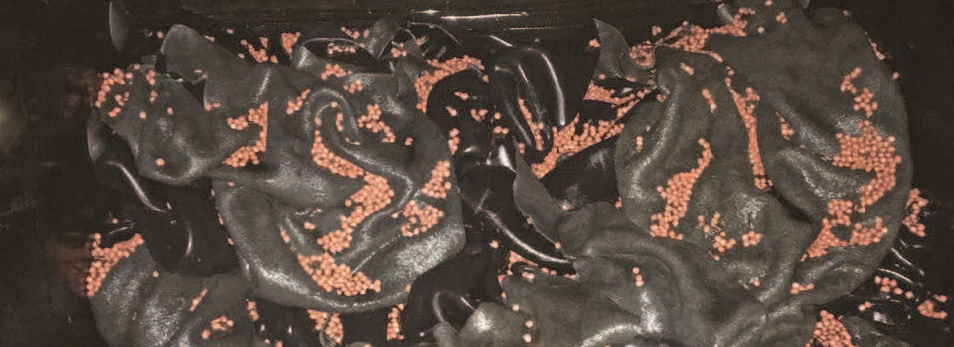R. P. Daniels, D. Cutner, A. Sadeghi, Qualus, UK – World Leather
The part-replacement of water in a float by the addition of inert polymer spheres allows good distribution of products between individual skins in leather making. At the same time, the increase in concentration enables chemical savings within the existing process.
Cost advantage can be gained by reduced chemical offers if coupled with an improved uptake of chemicals. Benefits can be considerable – as long as the properties of the original leather are retained. And these savings are not just limited to the purchase values of those products. Pristine chemicals are no longer channelled directly for wastewater treatment.
In leather manufacture, the chemical process is managed mainly by adjustment of pH, temperature, and concentration. In particular, adjust the pH or temperature within an established process, and the uptake and distribution changes. It is no longer the “same” leather.
A lowering of float levels is another option, as low floats and higher concentration favours both chemical uptake and penetration. This however, can lead to excessive mechanical action, and leathers are easily over-stressed: they can tear, especially at low substances.
It can also change the leather movement from separate well-opened pieces to that of bundles of leather or a tangled mass. There are limitations to low float uses as issues of poor distribution, staining, irregular penetration, and nonuniformity are raised.

An engineered approach
The mechanical action provided by the processing vessel and its internal fittings and configurations defines the lowest float levels that can be used in a process. This sets limits for the delivery of chemicals to well-opened skins, and the mechanical action needed for penetration.
However, these drum actions can now be changed. If inert polymer spheres are introduced into the process, the float volume can remain the same but with less water in the system. The increase in concentration makes the chemical
uptake more efficient, and the free movement of pieces need not be jeopardised.
Moreover, the spheres provide a massaging action upon drum rotation as they are folded within the flexing leather structure, and this assists penetration. Uptake, distribution and penetration can mirror the original process, but from a lower chemical offer.
These developments are based on technology transfer from the industrial washing of fabrics, where spheres are incorporated into washing cycles. The lowering of water content means fewer detergents and conditioners are needed. Moreover, the operation results in less creasing when the fabrics are removed.
Similarly, in the areas of neutralising, retanning, dyeing and fatliquoring, reductions of between 10% and 15% are being achieved and water reductions of 30% have been reached too.
Savings: process and environmental
Chemical uptake is difficult to quantify. It involves measurements of float levels, chemicals of unknown composition and their uptake, and losses as residual products contained within wash waters.
But reductions in environmental impact become clear by considering a process of, say, 70% efficiency, but where the same result is being provided by a 10% reduction in chemicals. Originally, the uptake would be 70 kg for every 100kg of product offered, with 30kg of unused product remaining for disposal. If the uptake remains at 70kg, but with a 10% reduction in offer, i.e., 90kg, the unused product is lowered to 20kg. The load for subsequent chemical treatment, energy for biological treatment, and management of solids is reduced by 33%. In reality these values will differ, but they serve an illustrative purpose.
Judgements can be based on final leather aesthetics, physical leather properties, and precisely costed chemical savings. But in this new situation, significant quantities of pristine products avoid expensive wastewater treatment too.
Managing the technology
Sphere applications are fully established, and advantages can be gained especially in the high expense areas of retannage, dyeing and fatliquoring.
Developed over six years by Qualus before introductions to industry, the technology includes systems to retain spheres throughout float exchange and washing sequences. It includes the collection and cleaning of spheres after process, their storage and delivery to following processes.
There are few limitations within tanneries that would prevent the implementation of this technology. It is a safe and longawaited means to reduce chemical offers, to reduce waste, and a major step towards a sustainable future.


